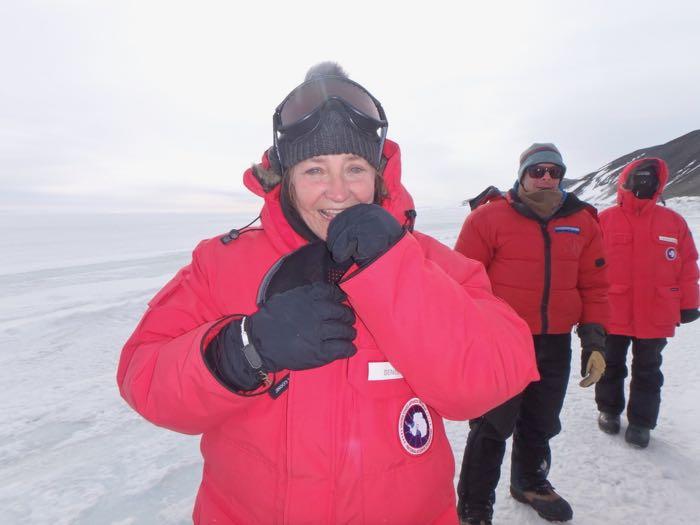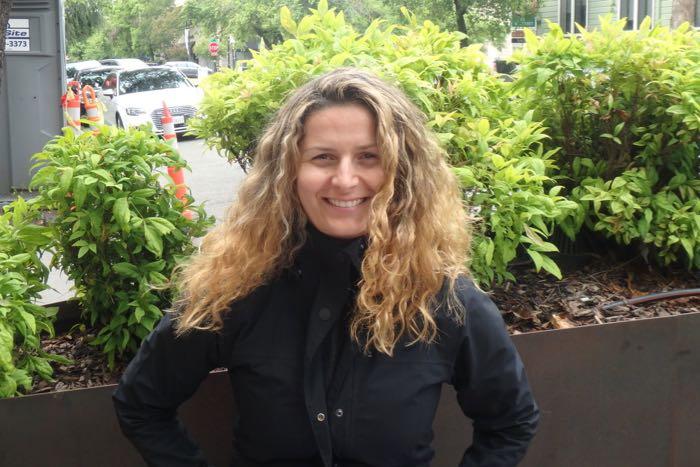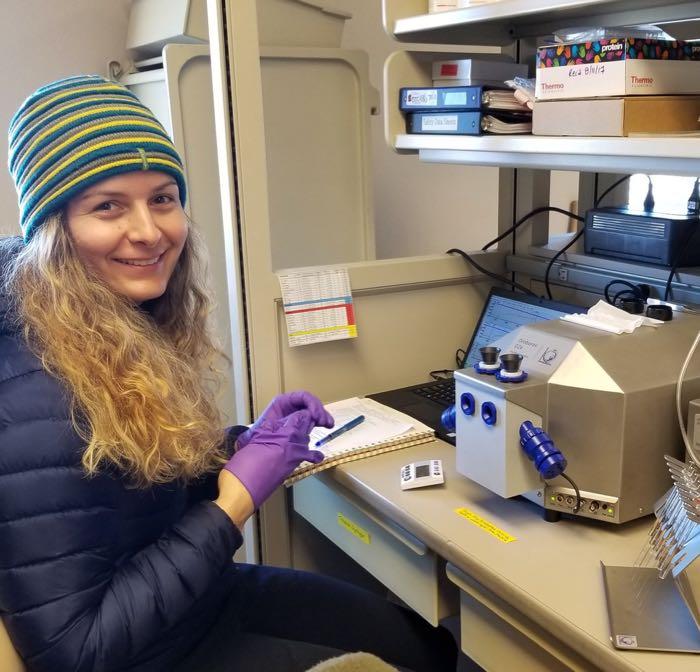Polar Connect Event

For anyone that couldn't attend live but is still interested in seeing the presentation, it was recorded and is available at:
https://www.polartrec.com/polar-connect/archive
Meet our Scientist

Milica grew up in former Yugoslavia where she developed her love of nature, and animals in particular. She wandered the streams and nearby forests which fostered a curiosity about how things worked. It wasn't until her third year as an undergrad that she realized the study of physiology fit her interests. Physiology addresses the function of organisms at the whole organism, as well as the cellular level. She is particularly interested in evolutionary physiology.
Her educational background includes finishing her MSc. and her Ph.D. at University of British Columbia with Dr. Jeff Richards. Her first post-doc assignment was completed at University of Ottawa with Dr. Steve Perry. Now she is working on her second post-doc project with Dr. Todgham.
She has several areas of study that her projects have concentrated on. She has looked at low oxygen tolerance in sculpin of the Pacific Northwest. These are small charismatic fish that live at or near the bottom of the ocean. The parameters she used included physiology, biochemistry and behavior in the context of their evolutionary history.

Milica was also able to use a cutting edge gene editing technique as part of her work with Dr. Perry. She looked at a protein that controls cellular oxygen levels. She addressed low oxygen situations again, but this time using zebra fish. It is interesting to note that this year's Nobel prize in physiology was based on the study of this same protein. (HIF)
She has worked on a variety of other projects focusing on mitochondrial function. These projects studied seasonal migrating yellow-rumped warblers in Utah and Arizona, as well as vampire bats in Belize.
Outside of her very busy work schedule, Milica enjoys a wide variety of activities. She plays on a volleyball team here in Antarctica. Back in North America, she likes to windsurf, snowboard or sail, depending on her location. Indoors, she enjoys reading and playing board games with her friends.
Her advise for students who are interested in pursuing a career in science is to stay flexible. She says that you may be heading down one path when other unexpected opportunities present themselves. These opportunities only come with hard work though, she cautions. She strongly suggest getting involved in research at the undergraduate level and getting to know your professors, if that is the path you are looking at. She said to enjoy the journey and be grateful for the privilege.
Dr. Todgham cerainly feels fortunate to be working with Milica this year, stating, "In sports, we sometimes bring in a ringer. Milica Mandic is our ringer this season. Some of the mechanistic questions we want to answer are best answered looking at the level of the mitochondria. Milic is allowing us to dig deeper into these questions then I thought possible."
Milica plans to continue her career in academia. She enjoys teaching at the university level and is looking for the right fit to combine her continued research along with instructional opportunities. I'm sure that she will be an amazing asset to a lucky university in the near future.
Saturday
Saturday is my last chance to really get out to see a penguin. We are going to Cape Evans to ice fish! I can't wait!
Stay Cool,


Comments